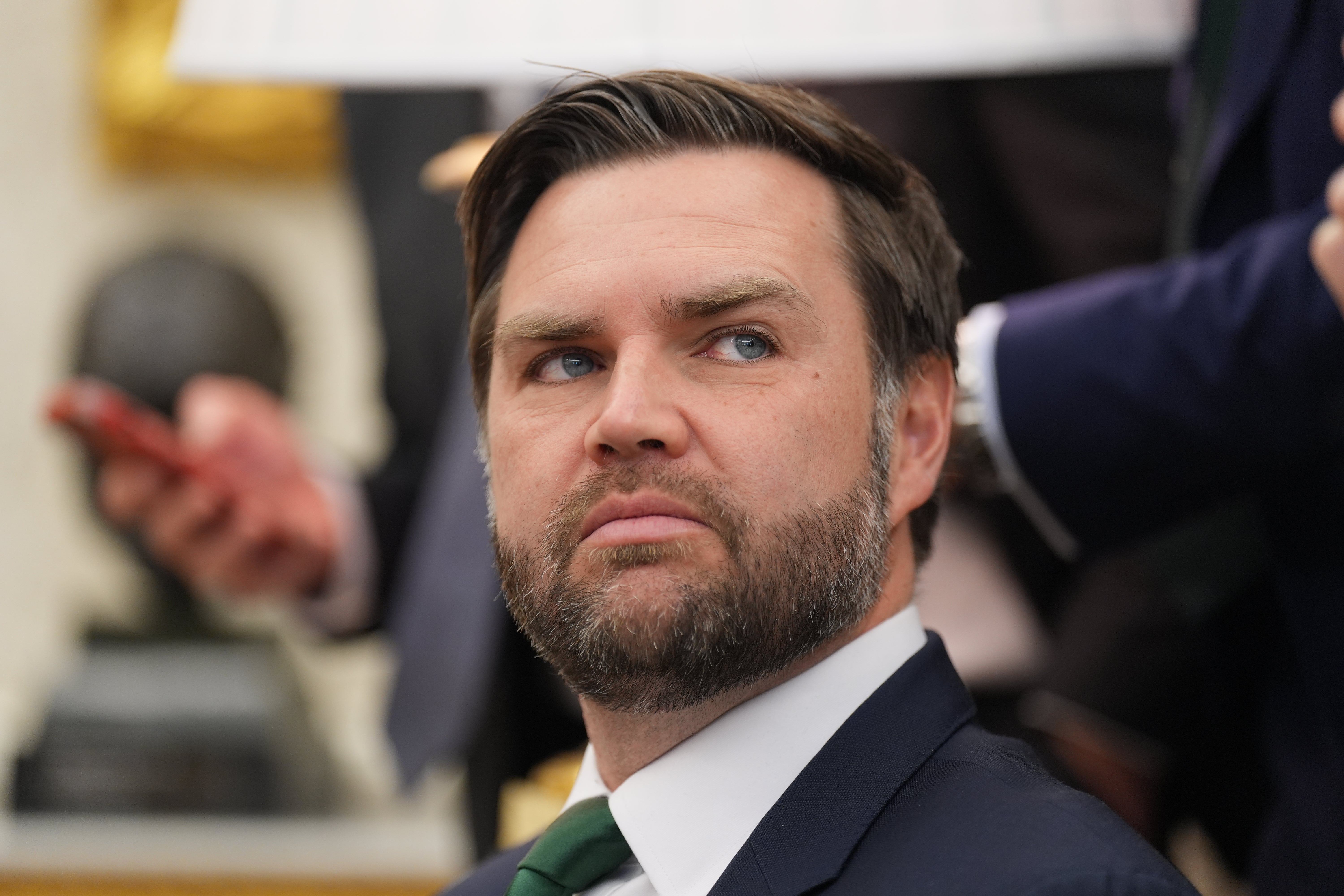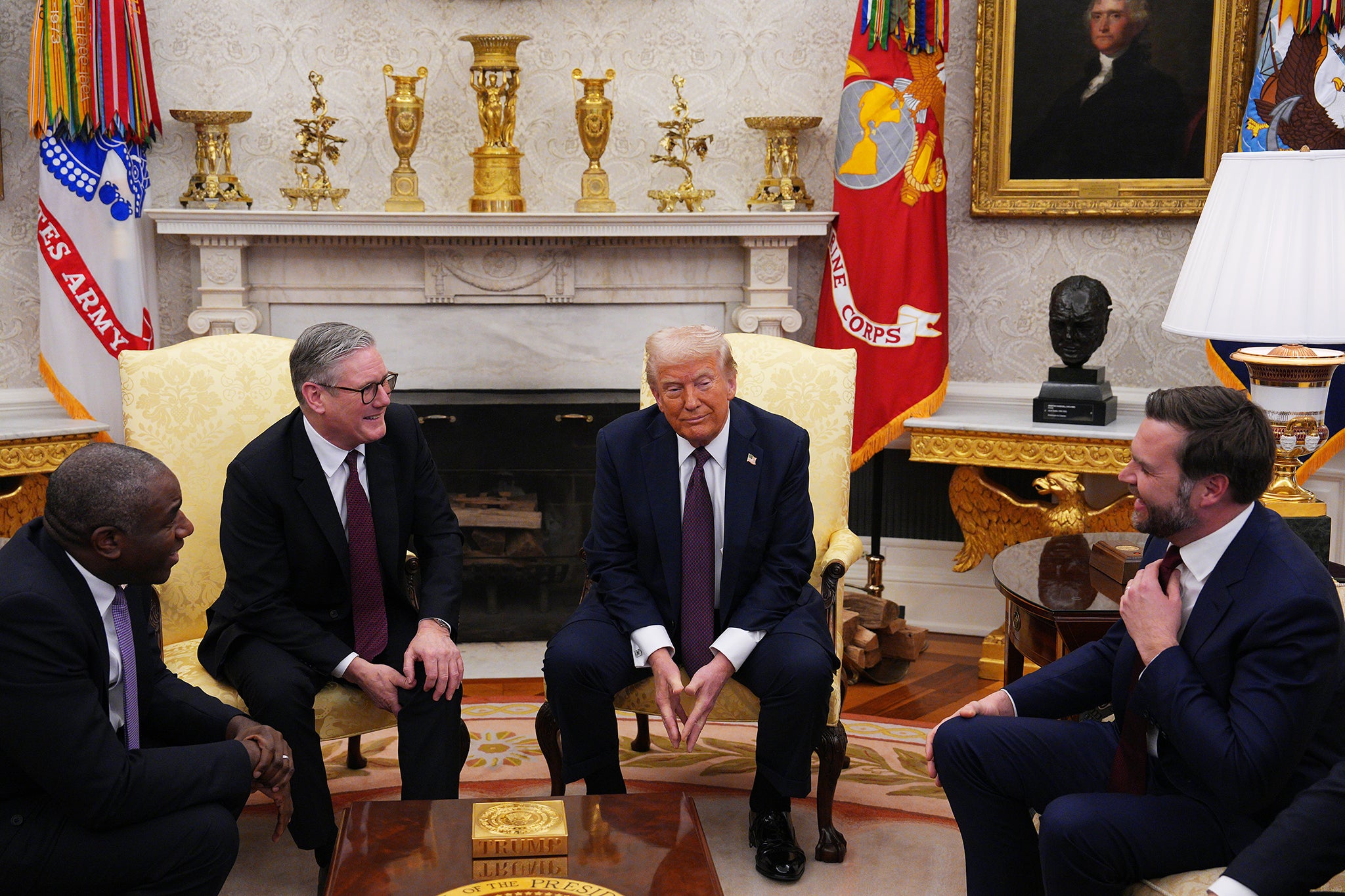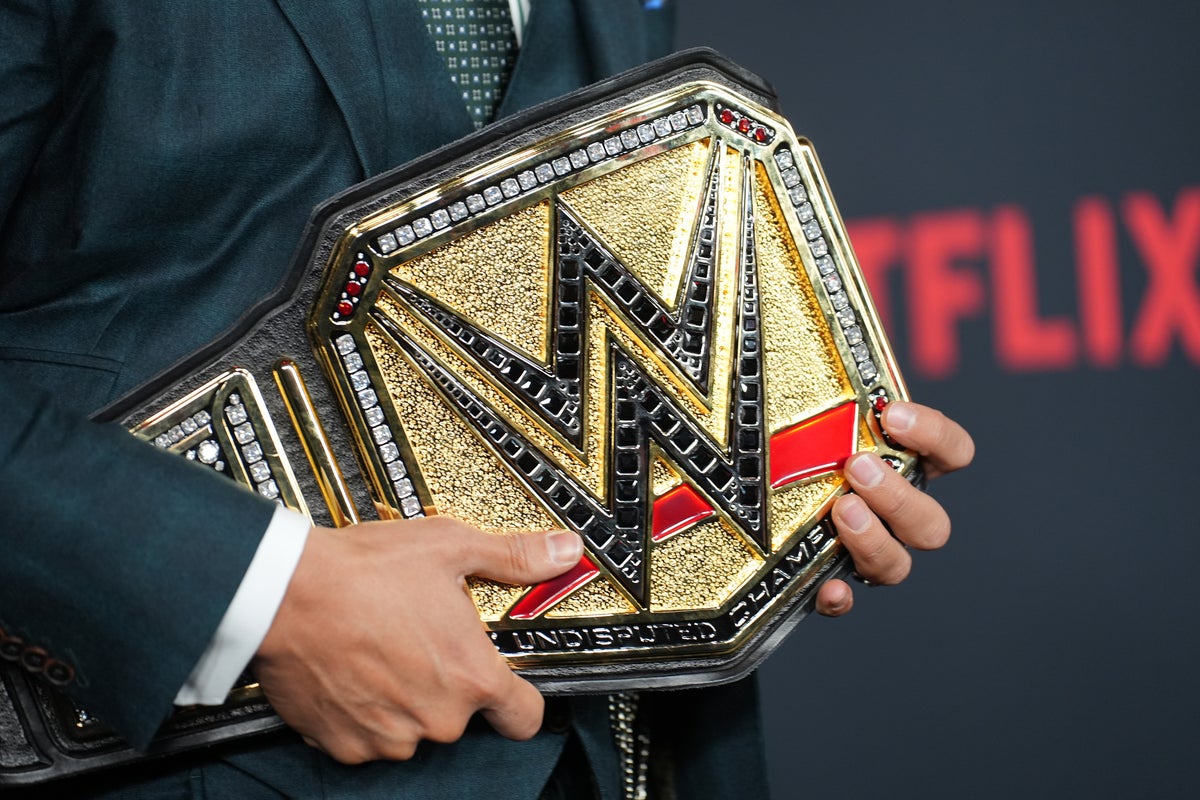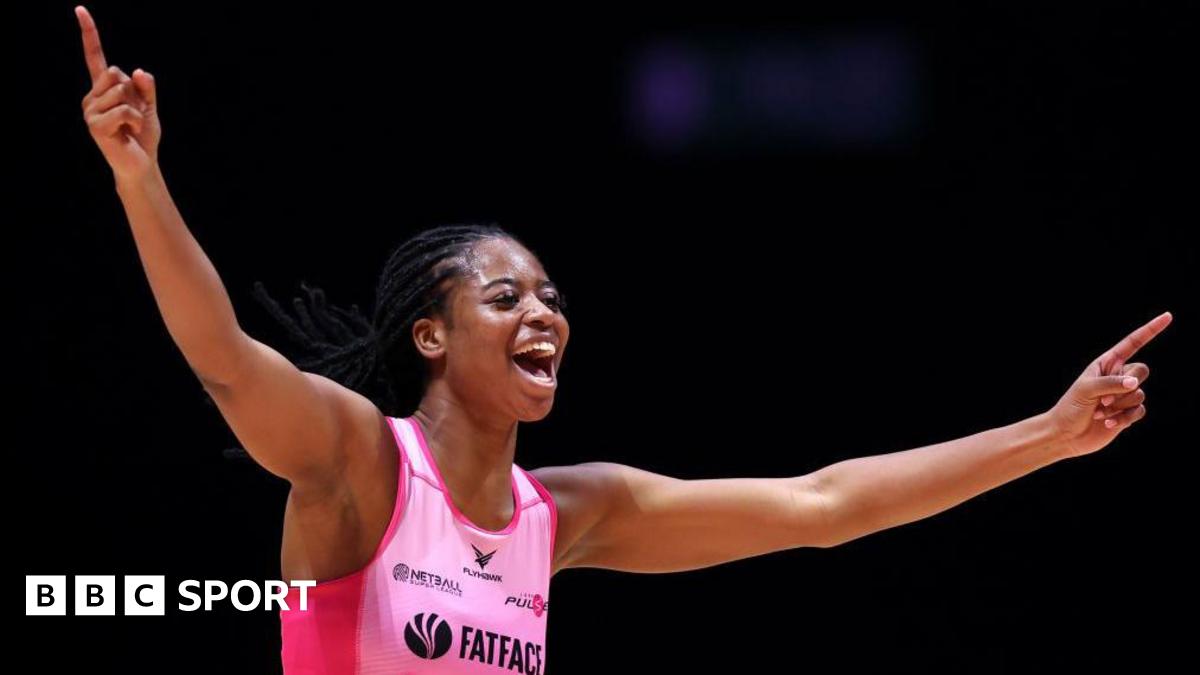Sir Keir Starmer must embrace Donald Trump’s agenda by repealing hate speech laws in order to get a trade deal over the line, sources close to JD Vance have told The Independent.
The warning came after the US vice-president suggested a UK-US agreement may be close, with the White House “working very hard” on it.
He told UnHerd: “I think there’s a good chance that, yes, we’ll come to a great agreement that’s in the best interest of both countries.”
But allies of Mr Vance say he is “obsessed by the fall of Western civilisation” – including his view that free speech is being eroded in Britain – and that he will demand the Labour government rolls back laws against hateful comments, including abuse targeting LGBT+ groups or other minorities, as a condition of any deal.
The Independent was told: “The vice-president expressing optimism [on a trade deal] is a way of putting further pressure on the UK over free speech. If a deal does not go through, it makes Labour look bad.”

Mr Vance’s recent speech to the right-wing Heritage Foundation think tank was cited as an example of his views on Western culture and free speech being linked to securing an agreement.
“No free speech, no deal. It is as simple as that,” the source close to the vice-president said.
It is understood that Britain has already offered to drop its proposed digital services tax as a means of getting a trade deal through. But the US wants to see laws on hate speech repealed as well as plans for a new online safety law dropped.
Labour has made it clear it is not prepared to go that far. A Downing Street source said the subject “is not a feature of the talks”.
However, the issue seems to be one of the main sticking points from the White House’s perspective.
Talks began last month after Sir Keir visited Mr Trump in the White House and intensified earlier this month with the tariffs announcement. While tariffs have been suspended for 90 days, the hope is that a deal can be done before they are brought into force.
Downing Street is aiming not for a traditional trade deal, but one focused on growth industries of the future, such as biotech and artificial intelligence.
Ministers insist this will not mean Britain has to accept imports of chlorinated chicken or beef with hormones, which have long been cited as concerns. However, they hope it will see most, if not all, tariffs removed between the two countries.
While Mr Trump’s trade secretary Howard Lutnick has taken a leading role in the talks with UK business secretary Jonathan Reynolds, the president announced at the start that Mr Vance would take the overall lead in the negotiations. UK sources have said he has been at the forefront with the tech side of the talks.
This has put the issue of free speech front and centre for Mr Vance and his allies in getting a deal with the UK.

The issue has become a central problem in UK-US relations since the summer riots when Mr Trump ally and X (Twitter) owner Elon Musk launched a vitriolic social media campaign against Sir Keir and his government, with people arrested over tweets.
It continued when Sir Keir visited the White House for the first time since Mr Trump took power and clashed with Mr Vance in front of the TV cameras in the Oval Office. The vice-president claimed that free speech was being undermined and also claimed that laws being brought in for online safety were an attack on US tech giants.
Most recently, the trial of Isabel Vaughan-Spruce for silently praying outside an abortion clinic has become a major issue in the US, with Mr Vance criticising the UK legal system over the case.
In his interview with Unherd, the vice-president expressed optimism about the talks.
He said: “We’re certainly working very hard with Keir Starmer’s government.
“The president really loves the United Kingdom. He loved the Queen. He admires and loves the King. It is a very important relationship. And he’s a businessman and has a number of important business relationships in [Britain]. But I think it’s much deeper than that.
“There’s a real cultural affinity. And, of course, fundamentally, America is an Anglo country.”
Meanwhile, Mr Reynolds on Tuesday said he had been clear with US counterparts that he did not support Mr Trump’s approach on tariffs.
But he said there is a need in some instances to look at how to rebalance world trade to ensure greater fairness.
He said: “I don’t support the kind of approach to unilateral tariffs that the US has pursued. We’ve made that very clear to our US friends and colleagues, but there are issues as to how parts of trading works around the word, and there is a need to look at how we can that fairly: how we can consider where in some cases countries are not operating to the same rules that we might expect here in the UK?”



